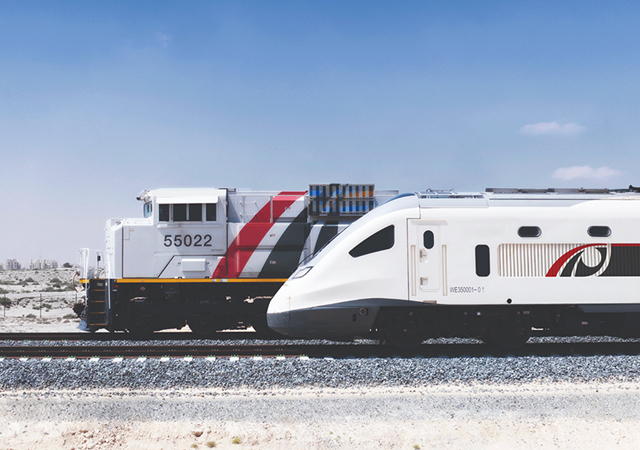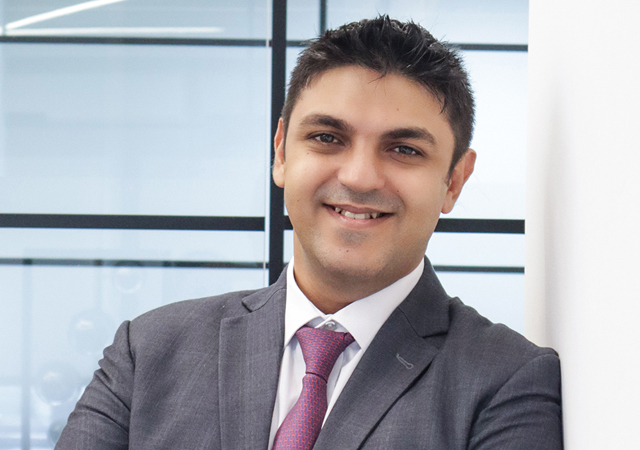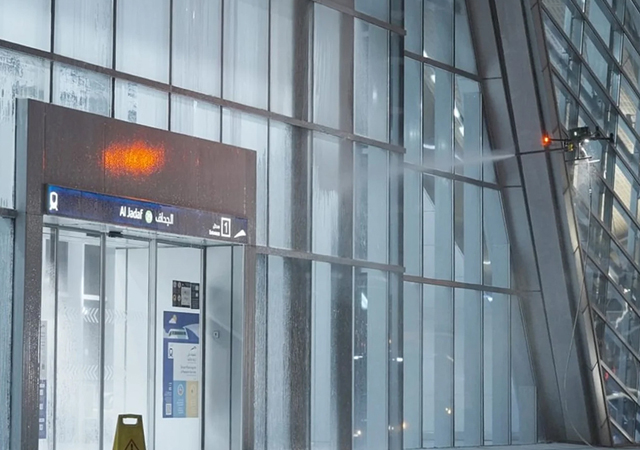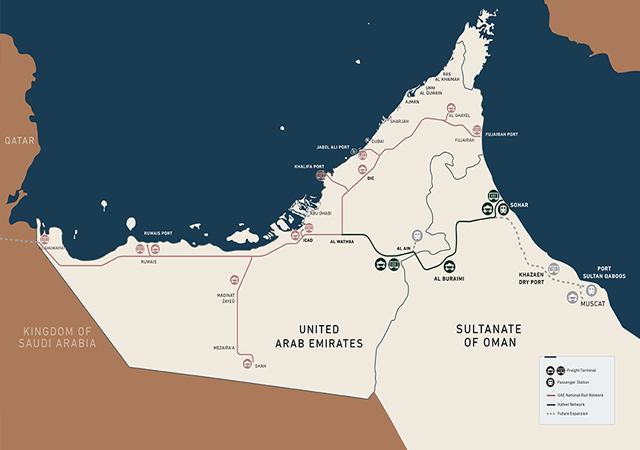
 The network, when complete, would be a 1,200-km line connecting the Saudi border at Ghuweifat in the west to Fujairah on the Indian Ocean coast in the east.
The network, when complete, would be a 1,200-km line connecting the Saudi border at Ghuweifat in the west to Fujairah on the Indian Ocean coast in the east.
The Etihad Rail stands out as the much-awaited railway line in the UAE’s long list of economic catalysts, providing crucial connectivity across the Emirates. According to the latest World Economic Outlook by the IMF, the UAE is estimated to have a $548.59 billion economy as of April 2025, which translates to $49,498 GDP per capita.
With such impressive figures, the UAE boasts one of the world’s highest standards of living, underscoring its need for High-Speed Rail (HSR) infrastructure. This rapid and efficient transportation system offers a compelling alternative to conventional rail and short-haul flights, perfectly suited to serve its affluent population.
The network, when complete, would be a 1,200-km line connecting the Saudi border at Ghuweifat in the west to Fujairah on the Indian Ocean coast in the east and is estimated to cost about AED40 billion ($11 billion).
A fleet of freight trains is already operating across the UAE, carrying a wide variety of goods. A passenger rail service and a high-speed rail project between Dubai and Abu Dhabi are in the pipeline.
Recently, Etihad Rail confirmed a 2026 launch for operations of the much-awaited passenger train service in the country. Further expansion plans to enable smooth travel between Oman and the UAE by train have been announced under the Hafeet Rail project, which will span about 238 km, linking Sohar in Oman to Al Wathba in Abu Dhabi.
 |
|
Valecha |
Wider Economic Impact
The high-speed trains are expected to reach 350 km/h, reducing the travel time between Dubai and Abu Dhabi to just under 30 minutes, while the passenger train could run up to 200 km/h and seat around 400 passengers. These, when complete, are expected to connect 11 cities across the seven emirates, linking them in a fashion never seen before.
The first four passenger rail stations would be in Abu Dhabi, Dubai, Sharjah and Fujairah, strategically placed alongside existing metro and bus lines, leading to an interconnected transport network.
Etihad Rail expects the passenger train project to transport about 36.5 million passengers annually by 2030, easing the stress of rising congestion levels on the roads of the UAE.
The benefits of seamless travel options for passengers and visitors throughout the country will enhance the UAE’s global competitiveness as a business and tourism hub. Etihad Rail expects the project to contribute about AED145 billion to the UAE’s GDP over the next five decades, which averages about AED3 billion annually.
The operational freight rail service comprises 38 locomotives and over 1,000 wagons for transporting goods and materials across the Emirates, boosting the UAE’s logistics sector, valued at approximately AED129 billion in 2023. The vision for the project remains to increase this figure to over AED200 billion within the next seven years, “reinforcing the UAE’s status as a leading global hub for trade and logistics”, as per the Ruler of Dubai.
By 2030, the project aims to increase cargo capacity to 60 million tonnes, significantly reducing the number of cargo trucks and harmful environmental emissions.
According to Etihad Rail, a single train trip can reduce up to 300 trucks from the roads, reducing transportation expenses and road maintenance costs. At the same time, this could result in removing up to 8.2 million tonnes of CO2 from the environment, equivalent to a reduction of about 21 per cent of carbon emissions from road transport annually by 2050, directly supporting the UAE’s strategy of achieving Net Zero emissions by 2050.
Impact on Real Estate
The high-speed train service is expected to enhance the appeal of real estate around rail stations by improving intercity mobility for both Abu Dhabi and Dubai. The fluidity of movement and the expansion of new work opportunities near these business hubs will attract population growth, directly impacting real estate prices.
Competition for land around rail stations may intensify for developers looking to set up state-of-the-art projects. Investor demand would be high, especially for capital appreciation from real estate investments. Currently, the network includes stations at Al Maktoum International Airport and Al Jaddaf in Dubai, while Reem Island, Saadiyat Island, Yas Island, and Zayed International Airport are expected to get stations in Abu Dhabi. Naturally, these would be the prominent areas where the real estate market is poised to benefit.
It is estimated by real estate experts that proximity to Etihad Rail stations would be crucial in determining property values, with estimates for property price appreciation and rental hikes going up to 10 per cent to 15 per cent for areas surrounding stations. Areas like Al Jaddaf, a residential-commercial area, will feel the benefits, primarily due to their strategic location within the existing connectivity by a metro station.
The positive impacts on real estate could be similar to the effect of proximity to metro connectivity in Dubai. As per a study by commercial real estate services and investment firm CBRE, the average growth in real estate prices under a 15-minute walking distance from the metro Red Line was 26.7 per cent for the period between 2010 and 2022.
Conclusion
Across the globe, cities like Tokyo, New York, London, and Shenzhen have shown the power of efficient transit infrastructure in turning metropolitan cities into global powerhouses. Etihad Rail could potentially do that for Dubai and Abu Dhabi, combining cultural heritage with tourism and innovation. The high-speed train would essentially eliminate the 140-km distance between the two cities, opening a world of possibilities. Living in one city and working in the other could become common, preventing overcrowding of population and opportunities in one city and boosting new development across the country. The project attracts the global prestige associated with having infrastructure projects usually seen in advanced economies, bolstering UAE’s international reputation and investor confidence for the upcoming years.
• Century Financial is a privately-owned financial services provider headquartered in Dubai, UAE.






.jpg)









.jpg)




































.jpg)



